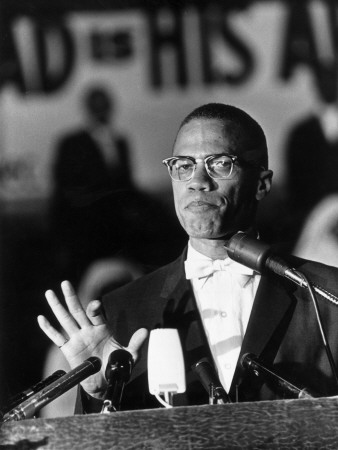AND WHO WAS, OR IS, BARI M. SHABAZZ?
Copyright © 2012 Martha Trowbridge. All Rights Reserved.
This work is protected by United States Copyright Law. PLEASE REFER TO THE REPRINT/QUOTATION POLICY LINK HERE
by Martha Trowbridge, ©2012, blogging at MarthaTrowbridgeTerribleTruth
Enroute, we’ll visit the psyche of The Cars’ guitarist and vocalist Ben Orr. And wind up stopping by that of Bâri’ M. Shabazz, a.k.a. “Barack Obama II”.
Please know that I employ the term ‘tragedy’ carefully.
For whenever a person breaks – whether we love or despise that person – tragedy it is.
Especially when that person held great promise. Displayed great promise. Promise, however, oh so intertwined with emotional and mental agonies.
With Malcolm X, it is a classic case of genius, twisted by torment.
Torment emanating from a life de-formed by family-of-origin trauma.
For, though few have paused to think about it, nonetheless, it’s true: Malcolm X was a man de-formed by cumulative, early-onset family trauma. In stark contrast to the ‘safe family’ environs enjoyed by Dr. Martin Luther King, Jr. [which likely accounts for Malcolm’s force-based separatist approach v. Martin’s peace-based integrationist approach] Malcolm’s early family life was ravaged by physical abuse, domestic violence, parental rage, poverty, hunger, chronic uncertainty, the sudden violent death of his father, the firebombing of his home when he was a young boy, and the mental breakdown and long-term institutionalization of his mother.
While within him dwelled genius, urgently seeking expression.
It is no mystery that Malcolm suffered lifelong consequences. For all his public bravado, he was plagued by fear. For all his braggadocio, he was fragile. For all his ‘rugged independence’, he felt painfully Alone In The Universe.
For – for all his attempts at brotherhood, at unity – distrust was his psyche’s ‘default’ setting.
And, for all his tenacious vision, the evidence suggests that by his life’s end, Malcolm had gone ‘mad’.
Mad with loss of stature, what with his expulsion from his treasured Nation Of Islam.
Mad with soul-searing pain of desertion, by those who for years had been loyal.
Mad with impending eviction from the house he for years called home.
Mad, those awful final weeks, living with the surety that soon, his enemies would kill him. Just as – young Malcolm was told at the wake – enemies killed his preacher-father.
What is a nationally prominent leader to do? A Minister, to whom the faithful went for answers?
Share with the world the anguish of unheeded boyhood cries for help? Of year after year of loneliness, suffering abandonment anxieties?
Of – despite his prodigious achievements – chronically feeling ‘less-than’?
What does a visionary do, when via current stressors, early-on fears and agonies overwhelm him?
And drive him mad?
Oh, Malcolm.
As The Cars vocalist and guitarist Ben Orr poignantly sang:
You can’t go on, thinkin’, nothin’s wrong
Ben, approaching the outskirts of his prime, in 1984:
—————-
Read the rest here.


